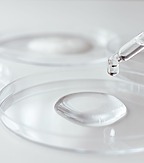Article | 24 May 2021
Health claims for botanical products

As consumers become more aware of their health and well-being, many companies deploy marketing strategies to convey the message that their products provide health benefits. There are, however, limitations on the health claims companies can communicate to the market and requirements for how these claims must be scientifically substantiated to ensure a high level of consumer protection. On 3 May 2021, the Swedish Patent and Market Court ruled in a case concerning health claims referencing the effects of plant or herbal substances, commonly known as botanical substances. In this article, Helena Nilsson and Anja Siöstedt at Setterwalls comment the case and the potential legal implications thereof.
In a recent decision from the Swedish Patent and Market Court (case no. PMT 11229-17), a number of health claims used to advertise food supplements were reviewed. Before the ruling of the Swedish court, several questions were submitted to the Court of Justice of the European Union (CJEU) to clarify the interpretation of Article 28.5 of Regulation 1924/2006 (the Regulation), how the evidentiary requirement and burden of proof should be distributed between the parties and lastly how the relationship between the Regulation and the Swedish Marketing Act should be interpreted.
When using health claims in commercial communications, the Regulation makes a distinction between specific health claims and general health claims, where a specific health claim makes a reference to a connection between a product, or an ingredient therein, and a specific health benefit. The Regulation contains a list of approved health claims, as well as general conditions for a specific health claim to be permitted. A general health claim is a reference to a general, non-specific benefit of the product for overall good health or health-related well-being. A general health claim must be directly accompanied by a specific health claim to be allowed in commercial communications.
In the case in question, a company was marketing food supplements containing botanical products such as ginger, dandelion and blueberries, using health claims such as “Movizin complex – for your joints” and “Blueberry – aids in preserving the normal function of the retina”. The Swedish Consumer Ombudsman claimed that the commercial communications were health claims that did not form part of the list of approved claims and that further use of the health claims should be prohibited. However, no list of approved health claims for botanical products has ever been compiled, for which reason the EU Commission put all health claims for botanical products that had not been approved before 1 September 2010 on hold until further notice. The health claims in the case at hand had not been approved before this date and were consequently put on hold.
In the preliminary ruling from the CJEU in case C‑363/19, it was provided that health claims put on hold in the approval process fell under the transitional provisions in Article 28.5 of the Regulation and could be used by food business operators in commercial communications at their own risk. Thus, the CJEU found that the claims in question could be used under the condition that the claims were determined to be compatible with the Regulation and applicable national law. As for the burden of proof, it was established that the company using the health claims was obliged to show that the nutrients have a beneficial nutritional or physiological effect according to generally accepted scientific documentation. The CJEU stated that this generally accepted scientific documentation cannot merely be based on conviction, hearsay or observations or on the experiences of people not forming a part of the scientific community.
The Swedish Patent and Market Court concluded that claims such as “Movizin complex – for your joints” and “Blueberry – aids in preserving the normal function of the retina” should be considered specific health claims as they clearly referenced a specific product or ingredient in conjunction with a specific health benefit and that the average consumer could be led to believe that there was a proven effect between the health benefit and the product or ingredient in question. The company using the claims therefore had to scientifically prove the existence of the effects. The Swedish Patent and Market Court concluded that the documentation provided to the EU Commission for the approval of the health claims did not render the health claims sufficiently substantiated by default and that a health claim being permitted in one Member State did not automatically render the same claim permitted in all other Member States.
As the company had not presented enough scientific documentation to support the claimed health effects, the company was prohibited, on penalty of a fine of SEK 500,000 in each case, from using the claims, for example, “Movizin complex – for your joints” and “Blueberry – aids in preserving the normal function of the retina” in their commercial communications.
Indeed, a food business operator that uses a health claim in connection with Botanicals needs to be able to justify the claims it uses by means of generally accepted scientific evidence. Those claims must be based on objective evidence that is “scientifically substantiated”. Until now, it has been quite rare for Swedish supervisory authorities to request scientific documentation in support of this kind of health claim. This is likely to change after this ruling.
Setterwalls continually assists clients operating in strictly regulated industries, and we often work in the crossover between regulatory law and market law. If you have any questions regarding marketing or related matters, please do not hesitate to contact us.


